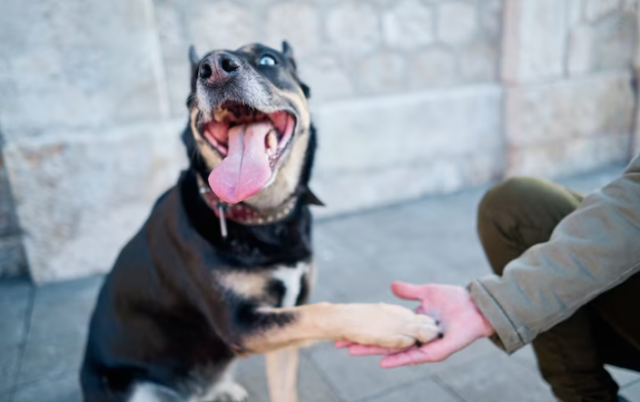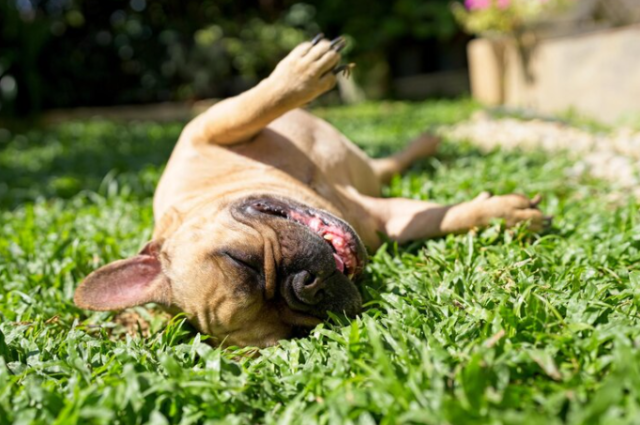Introduction
Are you searching for a loyal and spirited canine companion? Look no further than the remarkable Feist dog breed. With their rich history deeply intertwined with American heritage, Feists are cherished for their tenacity, intelligence, and endearing personalities. In this article, we delve into the captivating world of Feist dogs, exploring their origins, unique characteristics, and why they make exceptional pets for both rural and urban lifestyles. Let’s embark on a journey to discover the incredible Feist dog breed.

The Origins of Feist Dogs
Feist dogs have a fascinating history rooted in America’s early settlement. These agile and versatile canines were initially bred by European settlers who sought to create a versatile hunting dog capable of chasing the small game in diverse terrains. With a lineage traceable to various terrier breeds, the Feist dog emerged as a skilled and agile hunter, earning a reputation as an indispensable partner in the pursuit of squirrels, rabbits, and other small game.
Feist Dog Characteristics
1. Size and Appearance
Feist dogs are typically small to medium-sized, with a compact and muscular build that highlights their agility. They possess a distinctive, wedge-shaped head, alert round eyes, and ears that may be erect or folded. Their coat comes in a variety of colors and patterns, ranging from solid coats to striking combinations.
2. Temperament and Personality
Feist dogs are renowned for their boundless energy, intelligence, and unwavering loyalty to their families. They possess a keen sense of smell and exceptional problem-solving abilities. These traits make them highly trainable and adept at activities such as agility trials, obedience training, and even search and rescue missions. Feists are also known for their affectionate nature, forming strong bonds with their human companions.
Feist Dogs as Companions
Feist dogs make exceptional companions for individuals and families alike. Whether living in urban apartments or rural settings, they adapt well to their environments. Their compact size and moderate exercise requirements make them suitable for various lifestyles. With proper training, socialization, and mental stimulation, Feists thrive as loving family pets, eager playmates for children, and devoted guardians of their homes.

Training and Exercise
1. Training
Feist dogs are intelligent and eager to please, making them highly trainable. Positive reinforcement methods, such as treats and praise, work best when teaching them commands and desired behaviors. Consistency, patience, and early socialization are key to raising a well-mannered and obedient Feist companion.
2. Exercise Needs
To maintain their physical and mental well-being, Feists require regular exercise. Daily walks, interactive play sessions, and opportunities to engage their natural hunting instincts through scent games or puzzle toys are essential. Providing them with sufficient physical and mental stimulation will help prevent behavioral issues and ensure a happy, contented Feist.
Feist Dogs and Children
Feist dogs are known for their affectionate and gentle nature towards children. Their sturdy build and patient temperament make them ideal playmates for kids. However, as with any interaction between dogs and children, supervision and teaching children how to properly interact with dogs are crucial for a harmonious relationship.
Feist Dogs in Comparison
1. Feist vs. Jack Russell Terrier
Feist dogs and Jack Russell Terriers share similarities in size, energy levels, and intelligence. However, Feists are generally more adaptable to various living environments, while Jack Russell Terriers may require a more structured and active lifestyle. Both breeds excel in agility and obedience training, but Feists often exhibit a slightly calmer demeanor.
2. Feist vs. Rat Terrier
Feist dogs and Rat Terriers bear resemblances in their origins and hunting abilities. While Rat Terriers are slightly larger, Feists are known for their remarkable agility and endurance. Feists possess a more versatile coat in terms of color and patterns, whereas Rat Terriers tend to have a short, sleek coat. When it comes to temperament, both breeds display loyalty, intelligence, and a love for their families.
Feist Dog Care and Health:
1. Grooming
Feist dogs have low-maintenance coats that require minimal grooming. Regular brushing to control shedding and occasional baths are typically sufficient to keep their coats clean and healthy. Additionally, routine dental care, nail trimming, and ear cleaning are essential parts of their grooming routine.
2. Common Health Issues:
Feist dogs are generally a healthy breed with few breed-specific health concerns. However, like any dog, they may be prone to certain conditions such as dental problems, allergies, or joint issues. Regular veterinary check-ups, a balanced diet, exercise, and proper dental care can help maintain their overall well-being.
Feist Dog Breeders and Adoption
If you’re considering adding a Feist dog to your family, it’s essential to research reputable breeders or consider adopting from rescue organizations or shelters. Responsible breeders prioritize the health and temperament of their dogs, while adoption provides a loving home for a Feist in need. Ensure proper documentation, health records, and transparent communication with the breeder or adoption agency.
Conclusion
Feist dog breed encompasses a captivating blend of tenacity, intelligence, and affection. Their rich history as versatile hunting companions, coupled with their adaptability to various living environments, make them an excellent choice for dog enthusiasts seeking a loyal and spirited companion. Whether embarking on outdoor adventures or snuggling up indoors, the Feist dog’s unique charm and unwavering loyalty will undoubtedly bring joy and fulfillment to your life.
FAQs
Q1: Are Feist dogs suitable for apartment living?
Absolutely! Feist dogs are adaptable and can thrive in apartment settings, provided they receive sufficient exercise and mental stimulation.
Q2: Can Feist dogs get along with other pets?
Yes, with proper socialization and introductions, Feist dogs can coexist harmoniously with other pets, including cats and dogs.
Q3: How much exercise do Feist dogs require?
Feist dogs benefit from regular exercise, including daily walks, interactive play sessions, and mental stimulation activities. Aim for at least 30 minutes to an hour of exercise per day.
Q4: Are Feist dogs suitable for families with children?
Yes, Feist dogs are known for their gentle and affectionate nature towards children. However, supervision and teaching children how to interact respectfully with dogs are essential.
Q5: Are Feist dogs prone to excessive barking?
Feist dogs have a tendency to be vocal, especially when they sense something unusual or during hunting-related activities. Early training and socialization can help curb excessive barking tendencies.
Read also
- Supplements for Dog Allergies: Alleviating Itchy Woes
- Unraveling the Mystery: Why Is Your Dog Chewing His Paws?
- Best Dog Food for Puppies: Meeting the Nutritional Needs of Large Breeds
- Choosing the Best Dog Food for Your Husky Puppy: Ultimate Guide
- Organic Puppy Food: A Guide to Feeding Your Furry Friend
- Lion Dog Breed: A Perfect Blend of Beauty and Grace
- Best Dog Food for Labrador Retrievers: Providing Optimal Nutrition
- Discover the Best Dog Food for German Shepherd Puppy: Unveiling the Ultimate Guide!
- Top 10 Must-Have Dog Camping Gear for Your Next Adventure
- Stop Your Dog’s Raw Skin Issues with Effective Chewing Treatment
- Find the Best Dog Food for Your German Shepherd
- Discover the Versatile Mountain Cur Dog Breed | All You Need to Know
- The Best Small Dog Car Seats for Safe and Comfortable Rides
- Unveiling the Enchanting Benji Dog Breed: A Delightful Mix of Charm and Intelligence
- Best Dog Food for Golden Retrievers: A Complete Guide
- Dog Hiking Gear: Essential Products for Your Canine Companion
- Top 10 Best Large Dog Car Seats for Safe Travel in 2023
- Do Dog Dental Chews Work? We Investigate and Reveal the Truth
- Exploring the Best Wet Dog Food for Your Canine Companion
- Stop Your Dog’s Tail Chewing Habits with These Effective Strategies




